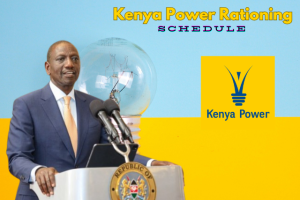Are You looking to start a podcast in Kenya with leveraging the professional services? We are here to help you kickstart your podcast journey.
Podcasting has become an influential medium for sharing ideas, stories, and expertise. In Kenya, the podcasting landscape is rapidly growing, offering a unique platform for reaching diverse audiences.
If you’re looking to start a podcast in Kenya, leveraging the professional services of Samtash Media can set you on the right path. Here’s a comprehensive guide to help you kickstart your podcast journey.
Understanding the Podcasting Landscape in Kenya

Before diving into the technical aspects, it’s essential to understand the podcasting environment in Kenya. The country’s internet penetration and smartphone usage have surged, creating a fertile ground for digital content consumption.
Podcasts offer a convenient way for Kenyans to consume content on the go, whether during commutes, workouts, or downtime.
Why Start a Podcast?
Podcasts provide numerous benefits, including:
- Reach a Wider Audience: Podcasts can reach listeners worldwide, expanding your audience beyond geographical boundaries.
- Establish Authority: Hosting a podcast allows you to share your expertise, positioning you as an authority in your niche.
- Engage with Your Community: Podcasts enable direct and personal engagement with your audience, fostering a loyal community.
- Monetization Opportunities: Successful podcasts can attract sponsorships, advertisements, and even listener donations.
Planning Your Podcast
1. Define Your Niche and Target Audience: Start by identifying your podcast’s niche. Consider your interests, expertise, and what value you can offer to listeners.
Once you have a niche, define your target audience. Understanding who your listeners are will help tailor your content to meet their needs and preferences.
2. Develop Your Podcast Format: Decide on the format of your podcast. Common formats include interviews, solo episodes, panel discussions, and storytelling. Choose a format that suits your content and audience.
3. Create a Content Plan: Outline the topics you want to cover in your podcast. Plan your episodes in advance, ensuring a consistent flow of content. This will help maintain audience interest and engagement.
Setting Up Your Podcast
1. Choose a Podcast Name and Branding: Your podcast name should be memorable, relevant to your content, and easy to search. Additionally, create a logo and cover art that reflect your podcast’s theme and brand.
2. Invest in Quality Equipment: Quality audio is crucial for a successful podcast. Basic equipment includes:
- Microphone: A good microphone ensures clear and professional sound quality.
- Headphones: Use headphones to monitor your recordings.
- Pop Filter: This helps reduce unwanted noise and plosives.
- Recording Software: Choose software that suits your needs, such as Audacity, GarageBand, or Adobe Audition.
3. Find a Quiet Recording Space: A quiet environment is essential for clear recordings. Choose a room with minimal background noise and consider soundproofing if necessary.
Recording and Editing Your Podcast
1. Record Your Episodes: Prepare your script or outline before recording. Speak clearly and confidently, and don’t rush through your content. Practice makes perfect, so don’t be afraid to re-record segments if needed.
2. Edit Your Recordings: Editing is crucial for producing a polished podcast. Remove any mistakes, background noise, and unnecessary pauses. Add intros, outros, and background music to enhance the listening experience.
Leveraging Samtash Production Services
Samtash Media offers professional production services that can elevate your podcast to the next level. Here’s how Samtash can assist you:
1. Professional Recording Studios: Samtash provides access to state-of-the-art recording studios equipped with high-quality microphones, soundproofing, and recording software. This ensures your podcast sounds professional and engaging.
2. Expert Editing and Production: Samtash’s experienced editors can handle the technical aspects of your podcast, including audio cleanup, adding music, and ensuring a smooth flow. This allows you to focus on creating content while leaving the technicalities to the experts.
3. Marketing and Promotion: Samtash can assist in promoting your podcast through various channels, including social media, email marketing, and collaborations with influencers. This helps increase your podcast’s visibility and attract more listeners.
4. Hosting and Distribution: Samtash can guide you on the best podcast hosting platforms and help distribute your podcast to popular directories like Apple Podcasts, Spotify, and Google Podcasts. This ensures your podcast reaches a broad audience.
5. Get Featured: You can also get your business or brand featured on Samtash YouTube channel.
Launching Your Podcast
1. Submit to Podcast Directories: Submit your podcast to major directories to make it accessible to listeners. Optimize your podcast’s title, description, and tags to improve discoverability.
2. Promote Your Podcast: Leverage social media, your website, and email newsletters to promote your podcast. Engage with your audience by responding to comments and encouraging feedback.
3. Monitor and Analyze Performance: Use analytics tools to track your podcast’s performance. Monitor metrics such as downloads, listener demographics, and engagement rates. Use this data to refine your content and marketing strategies.
Conclusion
Starting a podcast in Kenya is a rewarding endeavor that can amplify your voice and connect you with a vast audience.
By following these steps and leveraging Samtash Media’s professional production services, you can create a high-quality podcast that stands out in the growing Kenyan podcasting landscape. Focus on delivering valuable content, engaging with your audience, and continuously improving your skills to achieve podcasting success.





